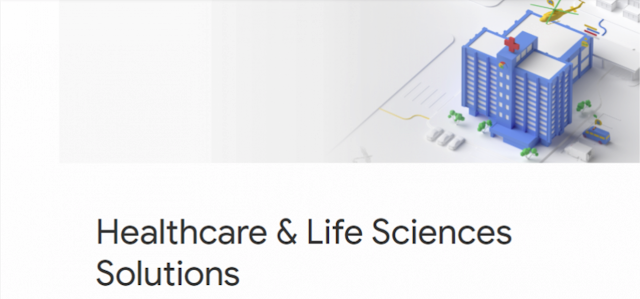【Google Cloud Next18】Google和美國國家衛生研究院聯手打造全球生物醫學資料生態系統
【Google Cloud Next18】Google和美國國家衛生研究院聯手打造全球生物醫學資料生態系統News from: iThome & Google Blog
Google宣布加入美國國家衛生研究院(NIH)的科學技術研究STRIDES(Science and Technology Research Infrastructure for Discovery, Experimentation, and Sustainability)倡議組織的合作夥伴,為生物醫學研究提供雲端技術支援,並以嚴格隱私控制有條件對外提供NIH資料集。
Google提到,生物醫學研究隨著發展,面臨了資料爆炸的挑戰。基因組學(Genomic)、轉錄組學(Transcriptomic)、代謝物組學(Metabolomic)與顯型(Phenotype)等研究領域所產生的資料持續成長,根據美國國家生物技術資訊中心的統計數字,每7個月這些資料就會增加一倍。

雖然大量的資料對於分析研究來說是好事,但事實卻十分令人沮喪,這些資料通常難以共享。由於這些生物醫學相關的資料,帶有大大小小的隱私限制而難以彙總使用,不同單位所提供的病患同意條款,不僅非統一規格甚至不可機讀。然而,障礙還不只這些,這些資料使用通常需要以研究人員身分進行,資料集存放的環境可能還缺乏計算彈性。
現在Google與美國國家衛生研究院合作,要用雲端技術來解決這些問題,以可擴展兼具彈性的運算與儲存資源,結合上全球網路與方便的資料準備與分析工具,來推動生物醫學研究。Google作為NIH的STRIDES計畫的合作夥伴,不只提供雲端技術,在協議之中,NIH要求Google以適當的隱私控制,允許對用戶提供由NIH資助產生的數據集。為了簡化這些資料集的存取程序,Google整合其雲端平臺的憑證作為研究人員身分驗證與授權的機制。
現在Google正與全球基因組與健康聯盟(Global Alliance for Genomics & Health)與BioCompute聯盟合作,制定支援資料存取、探索與雲端計算的產業標準。另外,Google也持續發展Variant Transforms等開源工具,方便彙總各地的資料集,使用雲端資料倉儲BigQuery結構化與整合生物醫學資料集。
--------------------------------------------------------------

Google宣布加入美國國家衛生研究院(NIH)的科學技術研究STRIDES(Science and Technology Research Infrastructure for Discovery, Experimentation, and Sustainability)倡議組織的合作夥伴,為生物醫學研究提供雲端技術支援,並以嚴格隱私控制有條件對外提供NIH資料集。
Google提到,生物醫學研究隨著發展,面臨了資料爆炸的挑戰。基因組學(Genomic)、轉錄組學(Transcriptomic)、代謝物組學(Metabolomic)與顯型(Phenotype)等研究領域所產生的資料持續成長,根據美國國家生物技術資訊中心的統計數字,每7個月這些資料就會增加一倍。

雖然大量的資料對於分析研究來說是好事,但事實卻十分令人沮喪,這些資料通常難以共享。由於這些生物醫學相關的資料,帶有大大小小的隱私限制而難以彙總使用,不同單位所提供的病患同意條款,不僅非統一規格甚至不可機讀。然而,障礙還不只這些,這些資料使用通常需要以研究人員身分進行,資料集存放的環境可能還缺乏計算彈性。
現在Google與美國國家衛生研究院合作,要用雲端技術來解決這些問題,以可擴展兼具彈性的運算與儲存資源,結合上全球網路與方便的資料準備與分析工具,來推動生物醫學研究。Google作為NIH的STRIDES計畫的合作夥伴,不只提供雲端技術,在協議之中,NIH要求Google以適當的隱私控制,允許對用戶提供由NIH資助產生的數據集。為了簡化這些資料集的存取程序,Google整合其雲端平臺的憑證作為研究人員身分驗證與授權的機制。
現在Google正與全球基因組與健康聯盟(Global Alliance for Genomics & Health)與BioCompute聯盟合作,制定支援資料存取、探索與雲端計算的產業標準。另外,Google也持續發展Variant Transforms等開源工具,方便彙總各地的資料集,使用雲端資料倉儲BigQuery結構化與整合生物醫學資料集。
--------------------------------------------------------------

Biomedical research faces enormous challenges as the volume of genomic, transcriptomic, metabolomic, phenotypic, and other data generated in research labs across the world continues to grow. According to the National Center for Biotechnology Information, the total amount of sequence data alone is doubling every seven months.
Although analyzing this staggering amount of data presents the potential for enormous positive impact, sharing data among researchers has historically been frustratingly difficult. Data is difficult to aggregate, even virtually, due to its size and to privacy concerns. Patient consents can be irregular or not machine-readable. Researcher identity often has to be established in order to access datasets. And datasets are not always housed in an environment rich in compute resources. Cloud computing can overcome all these challenges by providing scalable storage, elastic computing resources, fast global networks, and tools for data preparation and analysis.
Today we’re announcing that we are joining the National Institutes of Health (NIH) as a partner on the STRIDES (Science and Technology Research Infrastructure for Discovery, Experimentation, and Sustainability) Initiative to bring the power of Google Cloud to biomedical research. As part of this agreement, we’ll make some of the most important NIH-funded datasets available to users with appropriate privacy controls. To simplify access to these datasets, we’ll integrate researcher authentication and authorization mechanisms with Google Cloud credentials. And we’re working with the Global Alliance for Genomics & Health and the BioCompute Consortium to support industry standards for data access, discovery, and cloud computation.
In addition to this partnership, we’re continuing to develop a suite of open source tools, such as Variant Transforms, to structure and integrate biomedical datasets using BigQuery, our highly-scalable managed data warehouse solution.
We are proud to be working with the NIH to dramatically increase the number of biomedical datasets available on Google Cloud. By helping researchers to discover and authenticate against these datasets using open standards, and by making these datasets ready for researchers to perform scalable analytics and data science, we hope to usher in the next generation of biomedical discoveries. For more information on healthcare and life sciences solutions on Google Cloud, visit our website.


留言
張貼留言